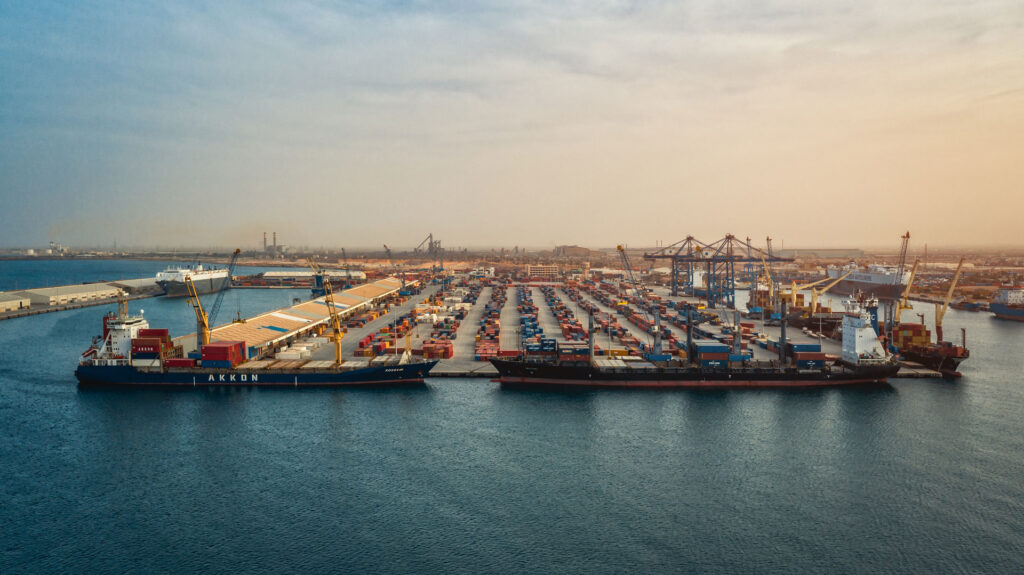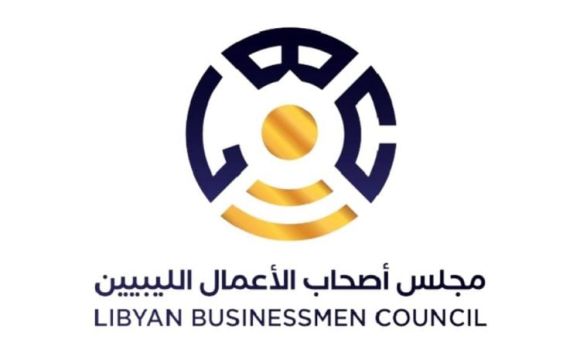All You Need to Know About Research in Libya

Research in Libya has been gaining momentum as the nation strives to rebuild and innovate in the aftermath of decades of conflict. With its rich cultural heritage and abundant natural resources, Libya holds significant potential for advancements in various academic and scientific fields.
Qabas | Consulting and Training, a leader in fostering research and innovation in Libya, is at the forefront of these transformative efforts.
Understanding the landscape of research in Libya is essential for fostering economic growth and social development. By addressing current challenges and leveraging existing opportunities, stakeholders can support initiatives that drive sustainable progress and enhance Libya’s position on the global stage.
Moreover, investing in research initiatives can bridge gaps in knowledge and technology, empowering Libyans to tackle local issues effectively. This focus not only benefits communities within Libya but also contributes to broader regional stability and prosperity, making research in Libya a matter of international interest and importance.
Table of Contents
Overview of Research in Libya
Libya’s research landscape has experienced significant transformation as the nation rebuilds its academic and scientific infrastructure. The establishment of various universities and research institutions has paved the way for advancements in fields such as engineering, medicine, and environmental science. According to the Ministry of Higher Education and Scientific Research, there are currently over 20 universities actively involved in research initiatives across the country.
Legal Framework and Policies
The Libyan government has implemented several laws and policies to support research and development. The Law on Scientific Research and Innovation, enacted in 2015, outlines the objectives and funding mechanisms for scientific projects. Additionally, the National Council for Scientific Research oversees the allocation of grants and ensures compliance with international research standards.
Research Institutions and Collaborations
Key institutions contributing to Libya’s research efforts include the University of Tripoli, which hosts multiple research centres focused on renewable energy and sustainable development. Collaboration with international universities has also increased, facilitating knowledge exchange and joint research projects. These partnerships enhance Libya’s capacity to address local challenges through scientific innovation.
Funding and Resources
Funding for research in Libya primarily comes from government budgets, international aid, and private sector investments. In 2022, the government allocated approximately £150 million to support various research programs. Additionally, organisations like Qabas Consulting & Training play a role in advising institutions on strategic planning and resource management, ensuring effective utilisation of available funds.

Challenges and Opportunities
Despite progress, Libya faces several challenges in its research sector. Limited infrastructure, brain drain, and fluctuating political stability impact the continuity and effectiveness of research projects. However, opportunities exist in leveraging Libya’s natural resources and cultural heritage to drive innovative research. Investment in technology and training can further bolster the country’s research capabilities.
Future Prospects
The future of research in Libya looks promising with ongoing efforts to enhance educational frameworks and increase international collaborations. Initiatives aimed at digitising research databases and improving laboratory facilities are underway, which are expected to attract more scholars and researchers to the country. Support from consulting firms like Qabas Consulting provides strategic insights, fostering an environment conducive to scientific growth and discovery.
| Year | Research Funding (£ Million) | Number of Active Institutions |
|---|---|---|
| 2018 | 100 | 15 |
| 2019 | 120 | 17 |
| 2020 | 130 | 18 |
| 2021 | 140 | 19 |
| 2022 | 150 | 20 |
By addressing existing challenges and capitalising on emerging opportunities, Libya continues to advance its research sector, contributing to national development and regional stability.
Historical Development
Libya’s research sector has evolved significantly since its inception, shaped by educational advancements and legislative support.
Establishment of Research Institutions
The foundation of Libya’s research landscape began with the establishment of key universities in the 1950s. The University of Libya, now the University of Tripoli, was founded in 1957, serving as the primary institution for higher education and research. Throughout the decades, over 20 universities and specialised research centres emerged, focusing on disciplines such as engineering, medicine, and environmental science. These institutions have played a crucial role in fostering academic excellence and innovation. Additionally, organisations like Qabas Consulting & Training have supported the development of research infrastructure, enabling institutions to enhance their operational capabilities and strategic planning.
Key Research Milestones
Significant milestones mark Libya’s research history. In 1983, the Law on Scientific Research and Innovation was enacted, providing a legal framework for research activities and promoting collaboration between academic institutions and industry. The establishment of the National Council for Scientific Research in 1990 further strengthened governance, overseeing grant allocations and ensuring the effective utilisation of resources. In recent years, partnerships with international entities have expanded, allowing Libyan researchers to engage in global projects and access advanced technologies. The introduction of digital research databases in 2015 marked a pivotal advancement, improving data accessibility and fostering interdisciplinary studies. Qabas Consulting has contributed to these developments by offering strategic advice and training programmes that enhance research methodologies and operational efficiency.
Current Research Sectors
Libya’s research landscape encompasses diverse fields, each contributing to national development and innovation.
Science and Technology
Libya focuses on advancing engineering, medicine, and environmental science. The University of Tripoli collaborates with international partners to enhance research capabilities. Laboratories across 15 universities facilitate cutting-edge studies in renewable energy and biotechnology. The 1983 Law on Scientific Research and Innovation provides a legal framework supporting technological advancements. Research funding primarily derives from government allocations, international grants, and private investments. Qabas Consulting & Training assists institutions in optimizing research operations and navigating regulatory requirements.
Social Sciences and Humanities
Research in social sciences and humanities addresses cultural heritage, education, and social development. Over 10 universities conduct studies on Libyan history, linguistics, and sociology. The National Council for Scientific Research oversees projects that explore societal dynamics and promote educational reforms. Legal frameworks ensure the protection of cultural assets and encourage academic freedom. Collaborative projects with regional institutions enhance the quality and impact of research. Qabas Consulting supports these initiatives by offering strategic guidance and training programs to improve research methodologies and outcomes.
Challenges in Libyan Research
Libyan research institutions encounter significant obstacles that impede their development and effectiveness. Addressing these challenges is crucial for advancing Libya’s academic and scientific landscape.
Political and Economic Barriers
Economic constraints limit the availability of funding for research initiatives. Reliance on government budgets and international aid creates financial instability, affecting long-term project sustainability. Additionally, variability in grant allocations hampers consistent research progress. Regulatory frameworks, while supportive in theory, often lack effective implementation, restricting access to necessary resources. To navigate these barriers, institutions benefit from strategic planning and risk management, areas in which firms like Qabas Consulting & Training provide valuable expertise.
Infrastructure Limitations
Research infrastructure in Libya faces challenges such as inadequate laboratory facilities, outdated equipment, and limited access to digital databases. These deficiencies hinder the capacity to conduct cutting-edge studies and reduce competitiveness in the global research community. The scarcity of specialised research centres further exacerbates the issue, limiting collaborative opportunities and resource sharing. Enhancing infrastructure requires targeted investments and efficient operational strategies, where consulting firms like Qabas Consulting & Training offer essential support to optimise existing resources and implement sustainable improvements.
Opportunities and Future Directions
Libya’s research sector presents numerous opportunities for growth and innovation. Strategic advancements can drive sustainable development and enhance global competitiveness.
Emerging Research Areas
Libya is expanding its focus on renewable energy, biotechnology, and information technology. Renewable energy research leverages the country’s abundant solar and wind resources, aligning with the national strategy for sustainable power. Biotechnology initiatives aim to advance healthcare and agricultural productivity, addressing local needs through scientific innovation. Information technology research enhances digital infrastructure, supporting economic diversification and modernisation. The Law on Scientific Research and Innovation provides a robust legal framework, encouraging investment and development in these key areas. Institutions across the country are prioritising these sectors to foster economic resilience and technological advancement.
International Collaborations
Collaborations with international partners play a crucial role in Libya’s research advancements. Partnerships with universities and research institutions abroad facilitate knowledge exchange and access to cutting-edge technologies. These alliances enhance the quality of research and expand opportunities for Libyan scholars and scientists. The National Council for Scientific Research oversees international grant allocations, ensuring alignment with national research priorities. Qabas Consulting & Training supports Libyan institutions in navigating these global partnerships, providing expertise in strategy and operations. By leveraging international collaborations, Libya can accelerate its research capabilities and integrate into the global scientific community.

Conclusion
Libya’s research landscape is evolving steadily driven by a commitment to innovation and sustainable development. As institutions grow and collaborations expand opportunities in key sectors like renewable energy and biotechnology become more accessible. Overcoming persistent challenges with strategic planning and support from entities like Qabas Consulting paves the way for continued progress. Harnessing its rich cultural heritage and natural resources positions Libya to make significant contributions to the global research community. Ongoing efforts promise not only national growth but also enhance regional stability and prosperity. With a focus on bridging knowledge gaps and fostering international partnerships Libya is set to advance its research capabilities and achieve lasting impact.
Frequently Asked Questions
What is the current state of research in Libya?
Libya’s research sector is rapidly evolving, marked by the establishment of over 20 universities and specialised research institutions. Focus areas include engineering, medicine, and environmental science. Supported by the Law on Scientific Research and Innovation, the National Council for Scientific Research oversees funding and initiatives. Despite challenges like limited infrastructure and political instability, Libya leverages its rich cultural heritage and natural resources to foster advancements and contribute to national development.
How is research funding managed in Libya?
Research funding in Libya primarily comes from government budgets, international aid, and private investments. The National Council for Scientific Research oversees grant allocations, ensuring resources are directed towards key areas like renewable energy and biotechnology. Additionally, international collaborations and partnerships provide essential financial support, while consulting firms like Qabas Consulting & Training assist institutions in optimising their research operations and securing sustainable funding sources.
What are the main research areas in Libya?
Libya’s research focuses on diverse fields including engineering, medicine, environmental science, renewable energy, and biotechnology. In the social sciences and humanities, studies concentrate on cultural heritage, education, and social development. These areas align with national strategies for sustainable development and economic diversification, aiming to address local challenges and enhance Libya’s global standing through innovation and academic excellence.
What challenges does Libya face in its research sector?
Libya’s research sector faces several challenges, including political and economic instability, limited funding availability, and inadequate infrastructure. Issues such as brain drain and outdated laboratory equipment hinder the capacity for advanced studies. Additionally, regulatory frameworks often lack effective implementation, affecting long-term project sustainability. Addressing these challenges requires strategic planning, investment in infrastructure, and support from consulting firms to optimise resources and ensure sustainable growth.
How is the Libyan government supporting research and innovation?
The Libyan government supports research through legislative measures like the Law on Scientific Research and Innovation, enacted in 1983. This law provides a robust framework for research and development, promoting investment in key sectors. The National Council for Scientific Research oversees grant allocations and strategic initiatives. Additionally, the government has established over 20 universities and research institutions, fostering an environment conducive to academic and scientific advancements.
What role do international collaborations play in Libya’s research?
International collaborations are crucial for advancing Libya’s research capabilities. Partnerships with global institutions facilitate knowledge exchange, enhance research quality, and provide access to funding and advanced technologies. For example, the University of Tripoli collaborates with international partners to bolster its research efforts. These collaborations help bridge knowledge and technology gaps, enabling Libyan researchers to engage in cutting-edge studies and integrate into the global scientific community.
What opportunities exist for growth in Libya’s research sector?
Libya’s research sector has significant growth opportunities in areas like renewable energy, biotechnology, and information technology. Leveraging the country’s natural resources and cultural heritage can drive innovative research. The robust legal framework encourages investment, while international collaborations offer avenues for development. Initiatives aimed at digitising research databases and improving laboratory facilities further enhance the potential for sustainable progress and integration into the global research landscape.
How have consulting firms like Qabas Consulting & Training impacted Libyan research?
Consulting firms such as Qabas Consulting & Training play a vital role in optimising Libya’s research operations. They provide strategic guidance, risk management, and training programmes to improve research methodologies and outcomes. By assisting institutions in navigating global partnerships and securing sustainable funding, these firms help overcome challenges like resource optimisation and infrastructure limitations, thereby supporting the growth and sustainability of Libya’s research sector.
What is the historical background of Libya’s research institutions?
Libya’s research landscape began with the establishment of the University of Libya in 1957. Since then, it has expanded to include over 20 universities and specialised research centres. Key milestones include the 1983 Law on Scientific Research and Innovation and the 1990 establishment of the National Council for Scientific Research. Recent developments include international collaborations and the introduction of digital research databases in 2015, which have significantly enhanced Libya’s research capabilities.
How does research contribute to Libya’s national development and regional stability?
Research plays a crucial role in Libya’s national development by fostering economic growth, social progress, and technological innovation. By addressing local issues through scientific advancements, Libya can bridge knowledge and technology gaps, promoting sustainable development. Additionally, robust research initiatives contribute to regional stability and prosperity by enhancing Libya’s global standing and encouraging collaborations that support broader regional goals.
Championing Synergistic Growth
The Euro-Libyan Trade Center (ELTC), is a non-partisan, non-profit trade promotion agency working in cooperation with the GUCC to strengthen economic relations between Europe and Libya.
ELTC strategically positions itself as an enabler of transcontinental economic activities, offering a structured platform for entities with vested regional commercial interests. We are dedicated to enhancing operational capacities, broadening market access, and heightening the competitive index of enterprises within the region.
For tailored organisational strategy consultation, kindly reach us at +44 207 193 5556 or submit an inquiry via the provided contact form.
Follow us on:
- Twitter: https://twitter.com/eurolibyan
- LinkedIn: https://www.linkedin.com/company/eurolibyan
Latest News & Publications
Ready to Elevate Your Business?
At the forefront of our mandate to drive economic development, we are dedicated to fostering meaningful partnerships with regional stakeholders, businesses, and professionals across diverse industries, charting a course towards a brighter, shared future.
For inquiries, please complete the form below or reach out to us at +44 207 193 5556



